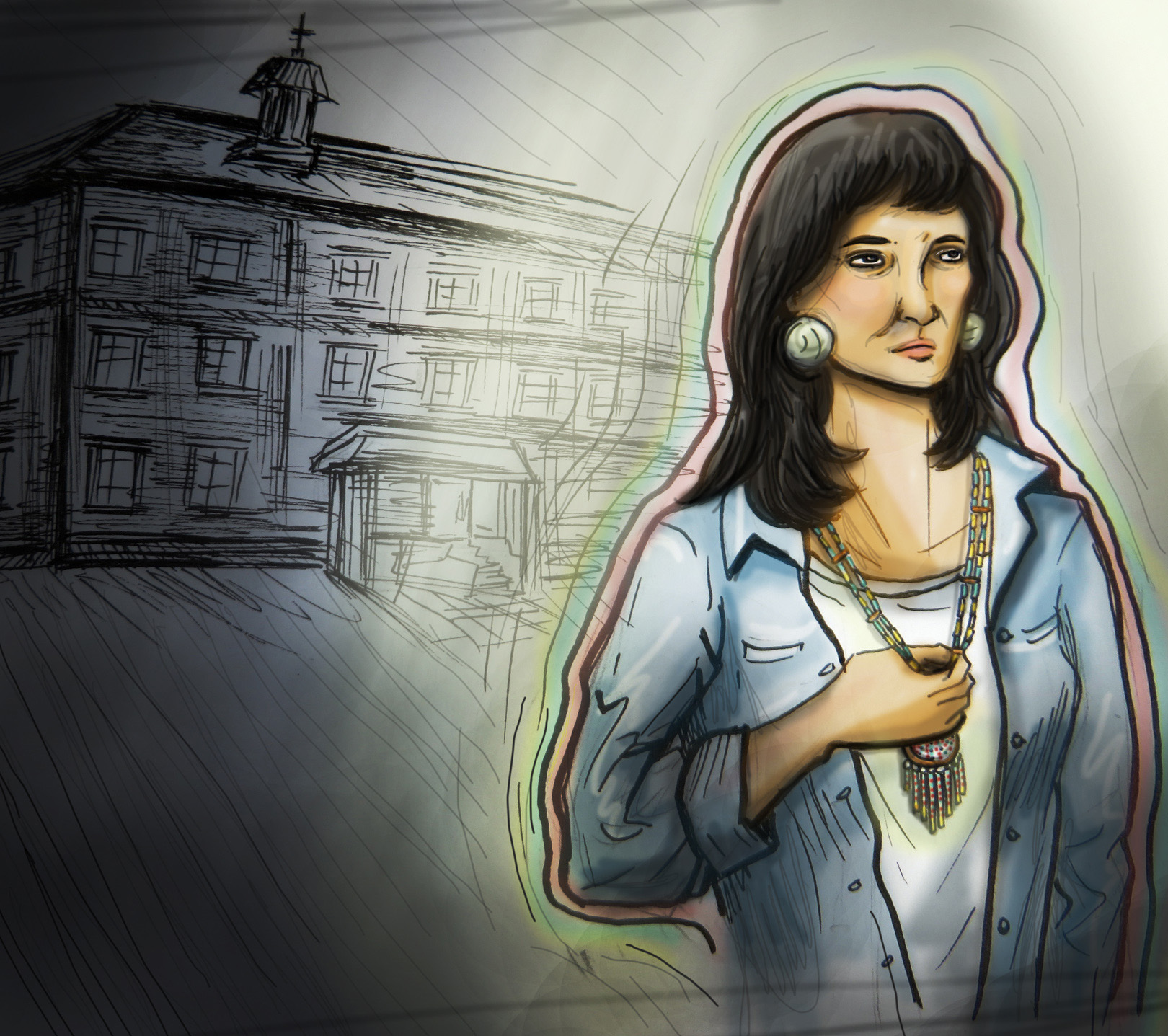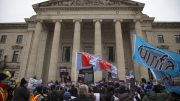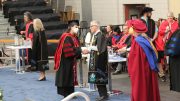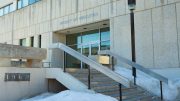Jennifer Keith, volunteer staff
Last week in Edmonton, the Truth and Reconciliation Commission of Canada (TRC) held its last national event. The event was an opportunity for survivors of residential schools to share their truths about the schools and their legacy. It was also a chance to witness and celebrate the resilience of Aboriginal people and culture.
The TRC was established to acknowledge the residential school experience, and its impact and consequences, as well as to contribute to truth, healing, and reconciliation for survivors.
It all started with a 2008 apology to former residential school students by Prime Minister Stephen Harper on behalf of all Canadians. In his apology, Harper asked for “forgiveness of the Aboriginal peoples of this country for failing them so profoundly.”
“It will be a positive step in forging a new relationship between Aboriginal peoples and other Canadians,” said Harper.
The devastating legacy of residential schools
Residential schools were in operation in Canada from about 1870 to 1996. During that time, “about 150,000 First Nations, Inuit, and Métis children were taken from their families and forced to attend the church-run schools.”
Residential schools were designed “to kill the Indian in the child.” Over the past four years, more than 6,500 survivors have bravely shared their personal stories of cruelty and abuse at the hands of those who were entrusted with their care.
Some have said that the truth-telling portion of the process is coming to a close. But before we turn that corner, perhaps we as Canadians should review our truths.
Residential schools represent a time in Canada’s history when racism, assimilation, and cultural genocide were not only accepted ideologies, but were explicitly legislated and funded by the Canadian government.
The government’s policy was one of “aggressive assimilation” to prepare Aboriginal children for life in mainstream society. Attendance by Aboriginal children was mandatory. As a result, some children were moved hundreds of thousands of kilometres from their families, often spending years at the schools, which robbed them of any type of normal family or community life.
Many of the men and women employed by the church to work at and run the residential schools were violent and treated students inhumanely.
After an Ontario Provincial Police investigation into the nuns, priests, and other employees at St. Anne’s Indian Residential School in Fort Albany, Ontario, it was found that they had beaten, raped, sexually assaulted, and tortured children in a “homemade electric chair” for their own entertainment.
At other schools, it has been proven that employees conducted nutritional experiments on students and used them as medical test subjects, purposely infecting them with diseases such as tuberculosis. It is estimated that tens of thousands of Aboriginal children died under the care of church employees.
Canada’s educational system has spread lies about Aboriginal peoples and their cultures, creating racists attitudes.
In residential schools, teachers taught their Aboriginal students that they were not as good as non-Aboriginal children. They told them that Aboriginal language and culture was irrelevant, that their families were heathens, and that they needed to abandon their inferior way of life for the Canadian way of life. This same education was given to children attending schools across the country, instilling several generations of Canadians with racist attitudes.
Residential schools were a breach of indigenous and human rights at the hands of the Canadian government, Christian churches, and Canadians. Taking children away, locking them up, and subjecting them to systematic abuse is a breach of basic human rights recognized by the United Nations. Attempting to take away Aboriginal peoples’ ability to continue as distinct peoples, and to maintain their culture and language, is another such breach.
Residential schools were funded and legislated by the federal government. Residential schools were Christian-church-run educational experiments in cultural genocide, assimilation, and paternalism that were inherently violent.
Our shared history of horrors
This is Canada’s truth; these horrors happened on Canadian soil and were inflicted by Canadian people. As Canadians, we need to educate ourselves about Canada’s historical experience. We need to understand the impact this history has on all of us today, and we need to acknowledge the consequences of these truths.
But truth-telling is only half of the healing process; it is only a stepping-stone. As the TRC hearings draw to a close, we need to turn the corner from truth-telling to reconciliation. Reconciliation is a process that involves all Canadians owning their respective truths, honouring the stories that have been shared, and committing to repairing this relationship.
By owning these truths, we create the opportunity to gain a greater understanding of Canada’s history and legacy of racism and violence, and determine its intergenerational effects. We create the opportunity to deconstruct how our government policies have ignored—and continue to ignore—the basic human and indigenous rights of Aboriginal peoples. We create the opportunity for critical self-reflection, to examine our government and its policies, to examine our social and religious organizations, and to examine ourselves.
We need to investigate how these insidious, toxic, and deplorable practices, attitudes, and ideologies have been carried forward, and continue to inform our existence today.
Once we understand how our past continues to inform our present, we can start healing from our violent history as individuals, as communities, and as a country. Through this healing, we can move from a relationship of colonialism and oppression to one of mutual recognition and respect.
Restoring a broken relationship requires commitment – commitment to doing the work necessary to change the policies of our government, to erase the discrimination in our organizations and communities, and to eradicate the racist ideas held by individuals. It requires taking action to continue on the path of healing, and to ensure that our racist, violent, and paternalistic histories no longer continue to inform our contemporary existence.
The truths have been told, but who has been listening?
Reconciliation requires that all Canadians pay attention and do their part.
The legacy of residential schools does not just belong to the governments of the past and the Aboriginal people who endured them. It belongs to each and every Canadian.
Restoring this relationship to one of mutual recognition and respect will require looking deep within ourselves and understanding how the impact of our history influences our attitudes, the way we interact with each other, and our assumptions and biases. These are the individual consequences of our history that we must challenge.
Reconciliation will require bringing all Canadians together, Aboriginal and non-Aboriginal, into a serious deliberation about the relationship, our communities, and our government policies. It will require sustaining a commitment to engage in that dialogue until social transformation is achieved.
The TRC has set the stage and provided us with an opportunity to move forward to forge a new relationship between Aboriginal peoples and other Canadians. But it is up to us to carry out the work – to commit to reconciliation by undertaking personal healing and, as a country, implementing the commission’s forthcoming recommendations.
Anything less would be another profound failure.






I enjoyed your article on the residential school survivors. A good portion of the peoples affected by the CFS system have not yet been address across this nation as I work with a lot of these people. They were not apart of the Residential School system but were put into foster homes, boarding schools, and other houses and facilities, plus institutions. These peoples cases have not been address and must be the second faze in the process for what North America has done to our people. I was a victim of the victims of Residential Schools across Canada and we people the now forgotten. There has to be something done!